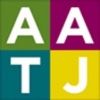Legal Aid does not have the resources to provide extended representation for every eligible case. Our staff may offer advice, brief services, and referrals to any eligible applicant – including case types not considered for extended representation.
Extended representation may involve:
- negotiation;
- document preparation;
- administrative or court representation;
- appellate practice;
- systemic advocacy;
- transactional work;
- community economic development; or
- legislative and administrative rule-making, as permissible.
Who is eligible?
The maximum income level is 125% of the Federal Poverty Guidelines (shown in the chart below). If certain factors are present, legal aid can waive up to 200% (second column) in unusual or meritorious circumstances. Call our helpline or apply online to see if you qualify for free legal help.
| Size of Family Unit | National Eligibility Level* | Maximum Income Level** |
|---|---|---|
| 1 | $18,825 | $30,120 |
| 2 | $25,550 | $40,880 |
| 3 | $32,275 | $51,640 |
| 4 | $39,000 | $62,400 |
| 5 | $45,725 | $73,160 |
| 6 | $52,450 | $83,920 |
| 7 | $59,174 | $94,680 |
| 8 | $65,900 | $105,440 |
The figures in the column labeled National Eligibility Level represent 125% of the Federal Poverty Guidelines, as determined by the Department of Health and Human Services. The figures in the column labeled Maximum Income Level represent 200% of the Federal Poverty Guidelines. Applicants whose total household income falls below the National Eligibility Level are income-eligible for legal assistance. Applicants whose total household income does not exceed the Maximum Income Level are income-eligible for legal assistance if certain specific factors are present that would allow the income between the two levels to be waived. Under no circumstances will applicants whose total household income exceeds the Maximum Income Level be considered income-eligible for legal assistance using LSC funds, though assistance may be provided using alternate funds, where permitted by that funding source.
*For each additional family member, add $6,725
**For each additional family member, add $10,760
Each eligibility level is determined using gross income.
Updated 01/18/2024
What is considered "income"?
The definition of income is found in 45 CFR §1611.2(i). All sources of income are to be used in determining eligibility, with these exceptions:
- SNAP benefits
- Housing vouchers, food or rent in lieu of wages
- Tax refunds
- Funds withdrawn from a bank account
- Gifts
- Compensation and/or one-time insurance payments for injuries sustained
- Any other non-cash benefit
- Up to $2,000 per year of funds received by individual Native Americans that is derived from Indian trust income or other distributions exempt by statute.
What we do NOT handle
Legal Aid of Arkansas cannot help with criminal problems, including traffic tickets. If you are unsure, call us.
What you should know
The Legal Aid staff will try to take your call right away. Because of call volume, at times, we may have to call you back.
You will be asked about your income and assets. Legal Aid can only help people with income and assets within the certain guidelines shown in the chart above.
Next, we will ask you to describe your problem or question in detail. We may ask you questions to gain a better understanding of your situation.
Legal Aid will then decide how best to assist you. Depending on your unique situation, here’s what you might expect:
- Legal advice over the telephone
- More detailed information sent to you by mail
- Brief service (e.g., filing a form)
- Referral to a staff or volunteer attorney for legal representation.
- Referrals to other services
How to apply
If you need help with a legal problem, have a question you think a lawyer should answer, or have been sued and don’t know where to turn, call our Helpline!
1-800-9 LAW AID (1-800-952-9243)
HelpLine Hours:
Mon-Thurs 9-11AM & 1-3PM
Tuesday evenings 5:15-7:15 PM
Legal Aid of Arkansas Service Areas: Baxter, Benton, Boone, Carroll, Clay, Cleburne, Craighead, Crittenden, Cross, Fulton, Greene, Independence, Izard, Jackson, Lawrence, Lee, Madison, Marion, Mississippi, Monroe, Newton, Phillips, Poinsett, Randolph, St. Francis, Searcy, Sharp, Stone, Van Buren, Washington, Woodruff. We also provide services statewide through our Fair Housing Project, Low-Income Taxpayer Clinic, and Medical-Legal Partnerships.
If you live in the above counties or have a legal problem in the above counties, you can apply for legal help online. For more information and to apply for legal aid, please click on the link below.




